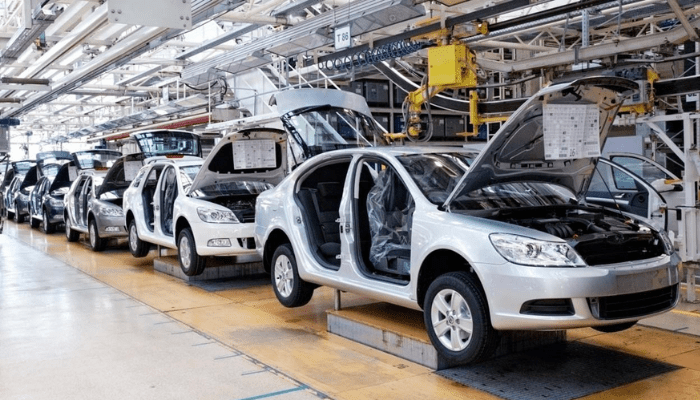Nigeria’s automotive industry is entering a new phase of transformation as auto manufacturers set an ambitious target of sourcing 50% of their vehicle components locally. This move comes as both government and private sector players collaborate to reduce reliance on imported parts, boost domestic production, and support economic growth through industrial expansion.
The push toward greater local content is fueled by the need to conserve foreign exchange, promote job creation, and strengthen Nigeria’s manufacturing capabilities. Government backing has come in the form of policies encouraging ministries, departments, and agencies (MDAs) to prioritize locally assembled vehicles in their fleet procurements, alongside a broader agenda to industrialize the nation.

Industry stakeholders, including vehicle assemblers and component fabricators, believe that achieving 50% local sourcing is possible, provided key structural and policy support systems are in place. Several local automakers, such as Innoson Vehicle Manufacturing, have already demonstrated capacity by producing a significant portion of their vehicle parts—such as bumpers, body frames, seats, and wiring systems—within Nigeria.
However, many automakers still rely on importing critical parts such as engines, transmissions, air conditioning systems, and infotainment units. These components require precision engineering, advanced technology, and stable supply chains—challenges that Nigeria’s nascent component industry is still working to overcome.
To close this gap, the federal government, through various ministries and agencies, is planning incentive programs that will encourage investment in local component manufacturing. These include tax breaks, funding access for parts manufacturers, and regulatory frameworks to ensure quality assurance and safety compliance. The government is also working on establishing automotive industrial parks that would host clusters of parts suppliers, creating economies of scale and efficiency.
According to industry insiders, the biggest hurdle remains infrastructure. Inconsistent power supply, high production costs, and limited access to finance continue to discourage many manufacturers from producing locally. Additionally, poor logistics, port delays, and inadequate raw material processing add further complications to the effort.
Yet, despite these challenges, there is a growing sense of optimism. Stakeholders argue that if local parts production is properly incentivized and protected from foreign competition, Nigeria could gradually become a regional hub for vehicle manufacturing. With the African Continental Free Trade Agreement (AfCFTA) providing expanded market access, local firms may be able to export auto components to neighboring countries once production scales up.
Experts also emphasize the role of skill development and technology transfer. To meet quality standards and sustain the 50% local content target, there will need to be continuous training for engineers, technicians, and assembly-line workers. Partnerships with international firms may be required to bring in expertise and build up local capacity over time.
While automakers and component producers continue to call for stronger government protection of the local industry—particularly through regulation of used vehicle imports—they also acknowledge the need to remain competitive. Local cars and trucks must match global benchmarks in safety, durability, and affordability if they are to win the confidence of Nigerian consumers.
The automotive industry is one of the key sectors identified by the government for job creation and economic diversification. A successful transition to higher local content would mean increased demand for upstream sectors like steel, rubber, plastics, paint, and electronics. This ripple effect could support thousands of jobs and stimulate small and medium-sized enterprises involved in the auto value chain.
Going forward, manufacturers are urging the National Assembly to pass legislation that would legally mandate local content thresholds and compel all levels of government to procure Nigeria-assembled vehicles. This, they believe, would solidify the gains made so far and provide long-term stability for local investment.
The 50% local parts target is not only an industrial goal—it is a national statement about economic self-reliance. If achieved, it could mark a turning point in Nigeria’s decades-long struggle to create a vibrant, competitive, and sustainable automotive industry.
Support InfoStride News' Credible Journalism: Only credible journalism can guarantee a fair, accountable and transparent society, including democracy and government. It involves a lot of efforts and money. We need your support. Click here to Donate
